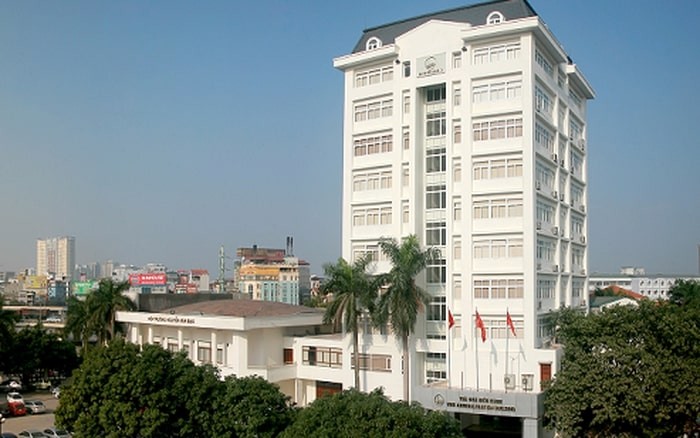Vietnam-EU: Training 50,000 Semiconductor Engineers by 2030
| HCMC & California Strengthen Cooperation in High-Tech, Semiconductors, and AI | |
| Int'l Cooperation in Training Human Resources for Semiconductor Industry for Vietnam |
Representing Vietnam at the seminar were Bui Ha Nam, Director-General of the Department of European Affairs under the Ministry of Foreign Affairs; Vo Xuan Hoai, Deputy Director of the National Innovation Center (NIC) under the Ministry of Planning and Investment; and Heads of Vietnam's diplomatic missions to EU countries. On the EU side, participants included Julien Guerrier, EU Ambassador to Vietnam, ambassadors from member states, and representatives from businesses.
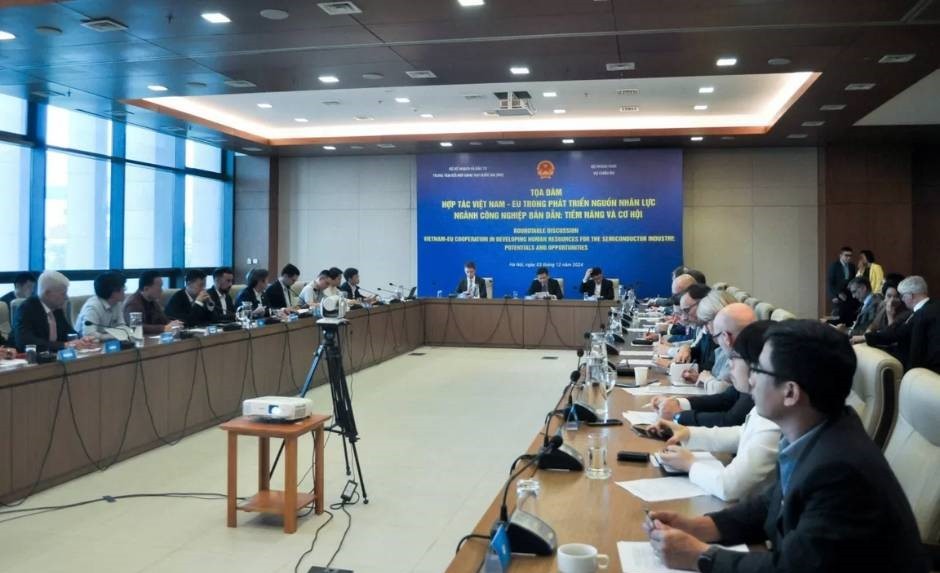 |
| The seminar aims to find directions and opportunities for cooperation in the semiconductor field between EU countries and Vietnam. (Photo: Pham Hien) |
In his opening remarks, Bui Ha Nam emphasized that the EU is a key partner for Vietnam, with strong political trust and significant trade and investment cooperation between the two sides. This solid foundation paves the way for strategic collaboration in areas such as the semiconductor industry.
He expressed hope that with its advanced science and technology and a comprehensive, high-quality education system, EU partners could support Vietnam in realizing its human resource development goals, particularly in the semiconductor sector.
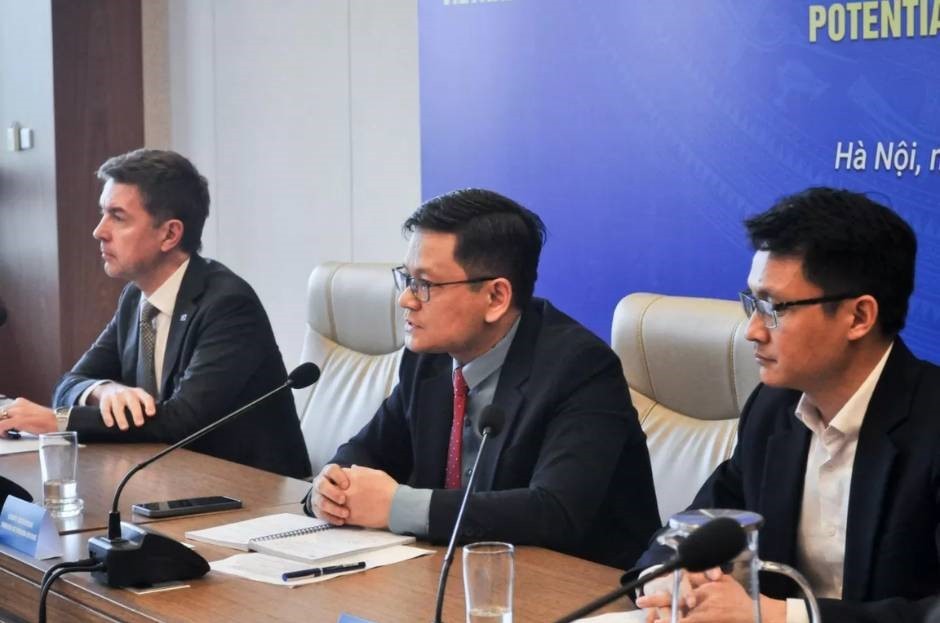 |
| Director of the European Department Bui Ha Nam delivered the opening speech. (Photo: Pham Hien) |
During the seminar, participants focused on three main topics: orientations, opportunities, challenges, and proposals from Vietnamese enterprises and educational institutions in training 50,000 semiconductor engineers; the measures needed from Vietnamese ministries and agencies to train a workforce for the semiconductor industry; and how EU countries can contribute to Vietnam's plan to train 50,000 semiconductor engineers.
Assessing Vietnam's readiness in the semiconductor industry, Vo Xuan Hoai noted that Vietnam has strong development potential, attracting global tech giants such as Intel, Amkor, Hana Micron, and Samsung to invest and operate in the country. However, Vietnam is still considered a newcomer in the sector.
As of now, Vietnam is home to 50 design companies, five semiconductor packaging and testing companies, and over 10 businesses in the semiconductor field. The country is actively attracting foreign companies in the sector and focusing on workforce development.
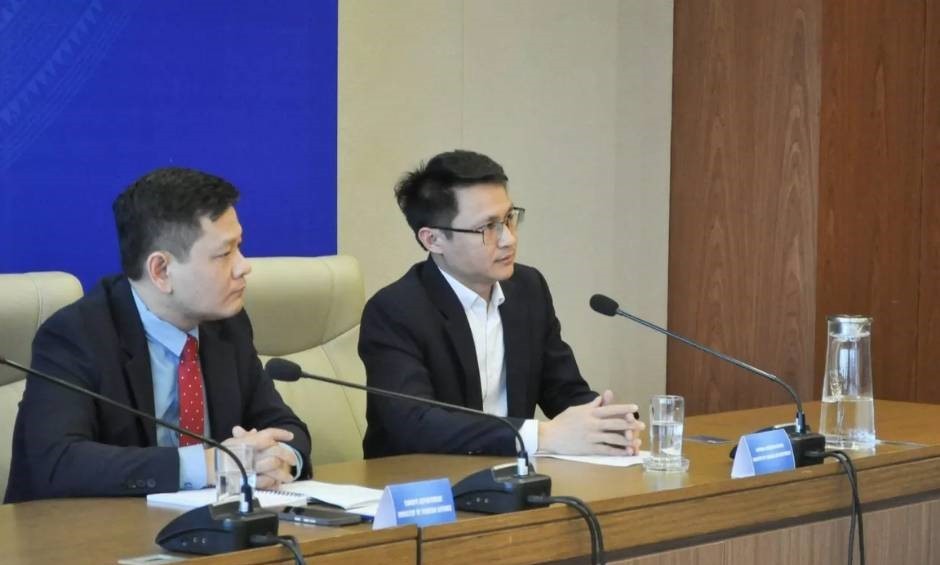 |
| NIC Deputy Director Vo Xuan Hoai speaks. (Photo: Pham Hien) |
In September 2024, Prime Minister Pham Minh Chinh signed Decisions 1018/QD-TTg and 1017/QD-TTg to approve the Strategy for Developing Vietnam's Semiconductor Industry by 2030 with a vision toward 2050. The government aims to train 50,000 semiconductor engineers by 2030 and is determined to achieve this goal.
Contributing to the discussion, several EU ambassadors to Vietnam expressed keen interest in investing in and developing Vietnam's semiconductor industry. Marco Della Seta, Italy's Ambassador to Vietnam, highlighted that Vietnam's strategy of focusing on workforce development by 2030 aligns with Italy's approach to enhancing labor capabilities through university partnerships.
Italy has a robust ecosystem of research and academic institutions in this field, such as Politecnico di Milano, Scuola Superiore Sant'Anna, and Scuola Normale Superiore in Pisa. Therefore, Italy sees opportunities for cooperation with Vietnam in this area. Ambassadors from France, Germany, and the Netherlands also shared insights into training programs and the potential for future collaboration between Vietnam and their respective countries in the semiconductor field.
Representatives from EU semiconductor organizations and companies, including the Semiconductor Association Semi, Dassault Systems, NXP, Hexagon, and Synergie CAD, discussed the sector's potential and challenges. They also proposed effective cooperation strategies between the EU and Vietnam.
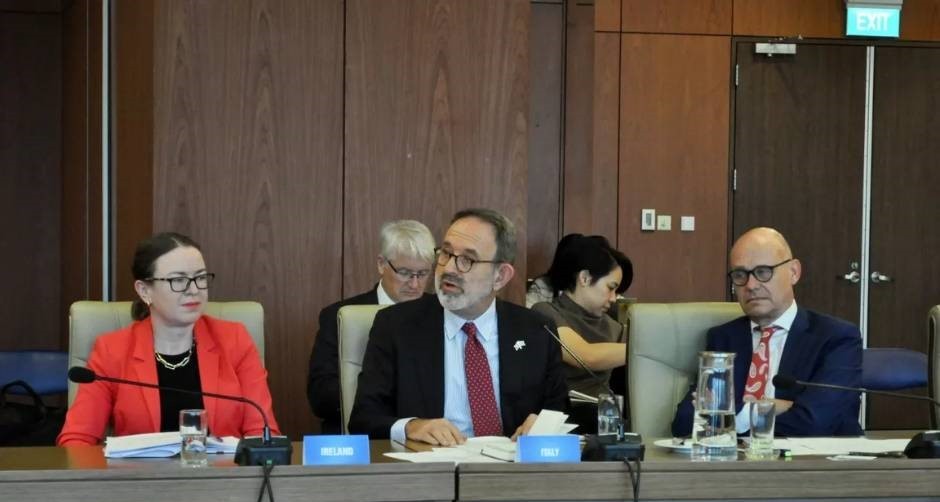 |
| Italian Ambassador to Vietnam Marco Della Seta presented a speech. (Photo: Pham Hien) |
In concluding the seminar, Bui Ha Nam emphasized that achieving the goal of 50,000 semiconductor engineers by 2030 and overcoming challenges in research, training, and education in this emerging field would require a well-trained, skilled workforce and increased investment in facilities and educational institutions.
Vietnam must proactively foster cooperation and exchange programs for students and engineers with universities and research institutes specializing in semiconductors in EU countries. This mutual commitment aims to harness the significant potential and opportunities available to both sides.
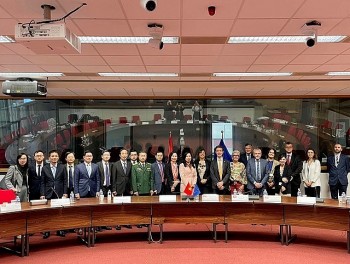 | EU, Vietnam Forge Cooperation in Different Spheres The EU and Vietnam underline the breadth and depth of their multifaceted relationship, discuss a broad range of topics in the various fields of their ... |
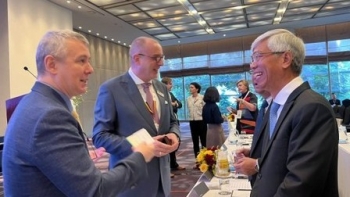 | Vietnam Benefits From Vietnam-EU Free Trade Agreement Karl Van den Bossche, ambassador of the Kingdom of Belgium to Vietnam, said that Vietnam is benefiting from the Vietnam-European Union (EU) Free Trade Agreement. |
Recommended
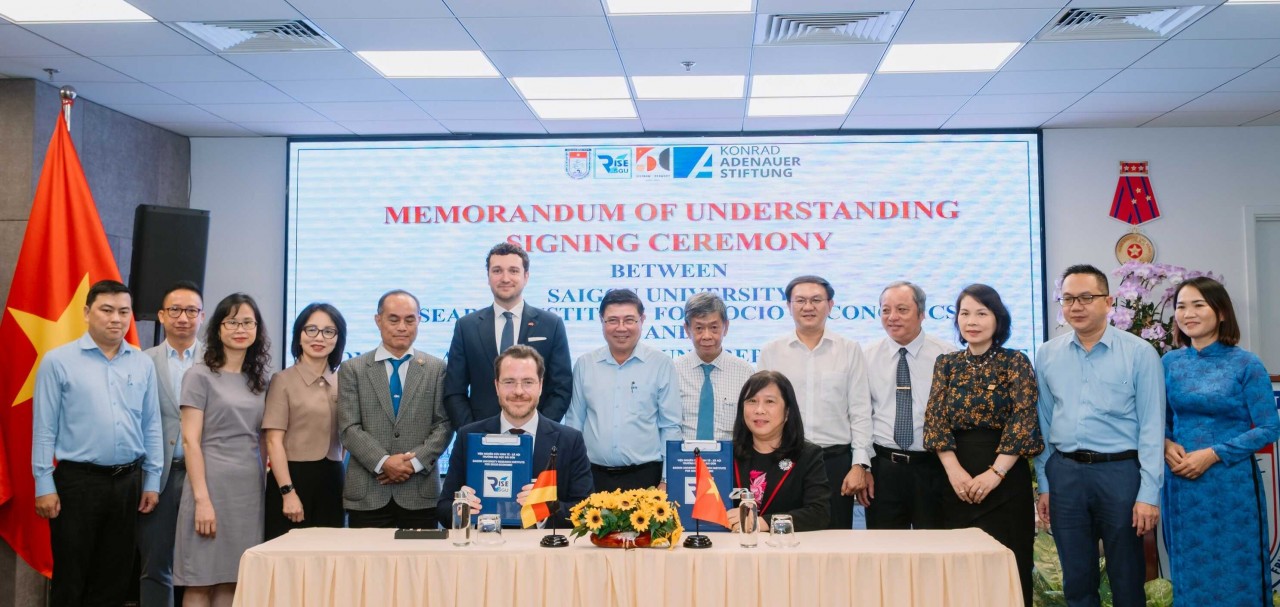 Friendship
Friendship
Another Vietnamese University Partners with Germany’s Konrad Adenauer Stiftung
 Friendship
Friendship
Over 200 Vietnamese and Russian Children Join “Red Scarf Of Friendship”
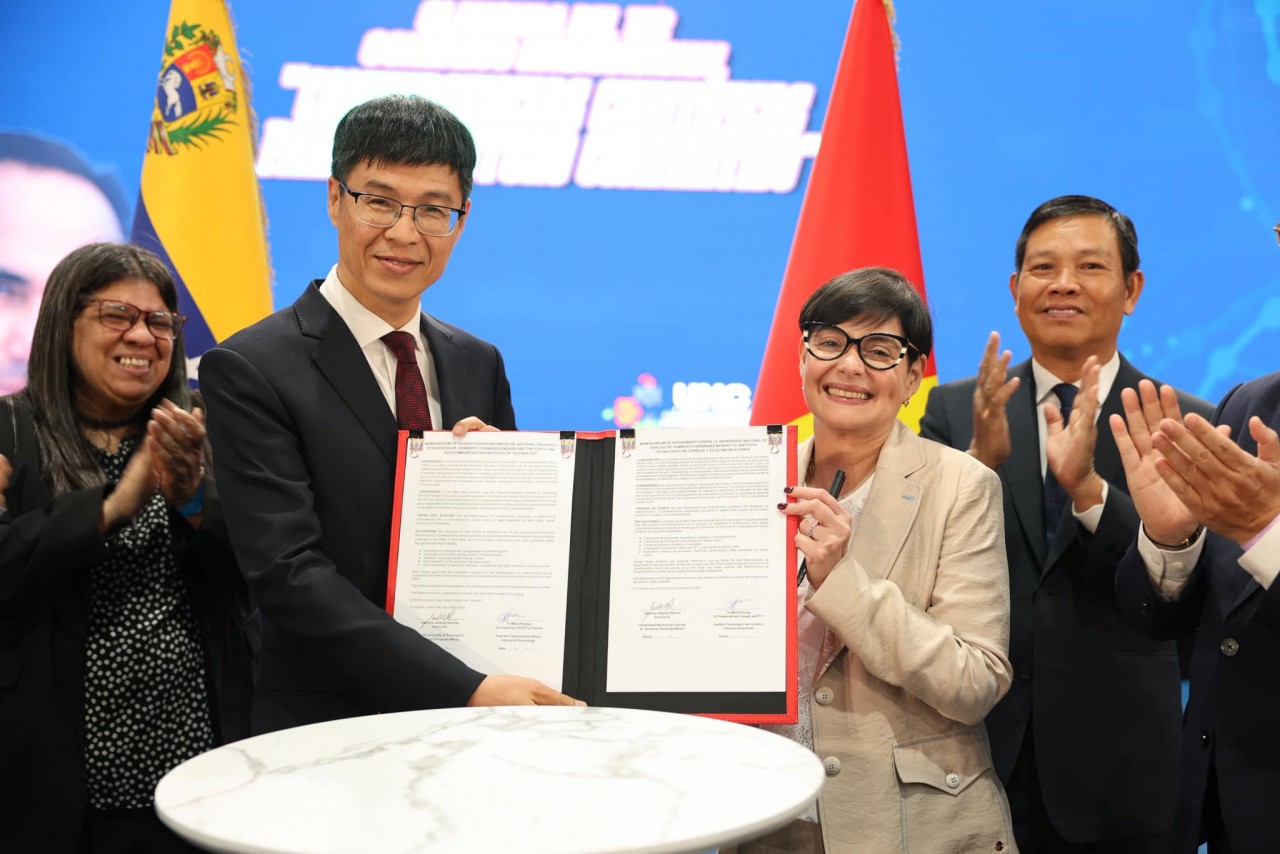 Friendship
Friendship
Venezuela Seeks Vietnam’s Expertise in Science and Technology
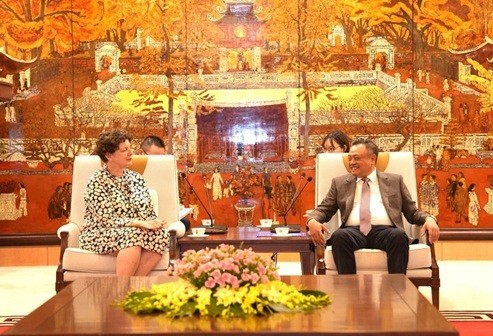 Friendship
Friendship
Diverse Activities to Celebrate the 50th Anniversary of Vietnam - Germany Diplomatic Relations
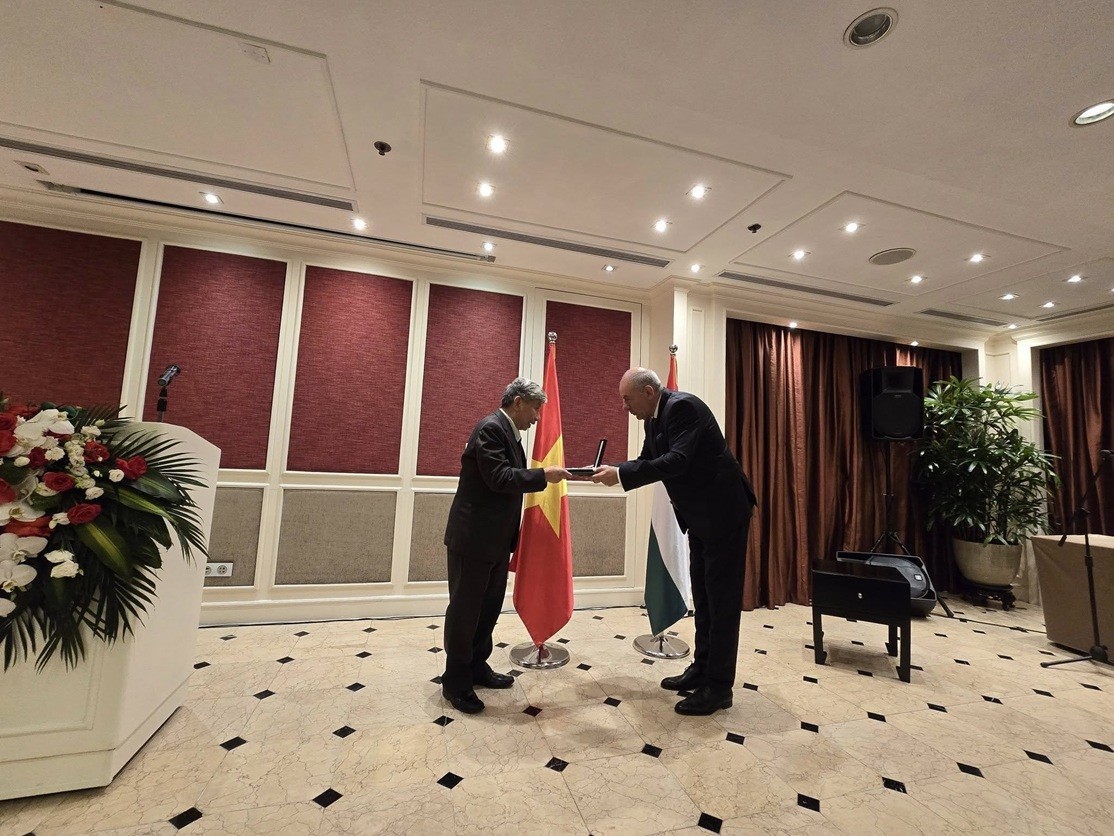 Friendship
Friendship
Dr. Vu Hoai Chuong Receives Hungary's Knight Cross Order
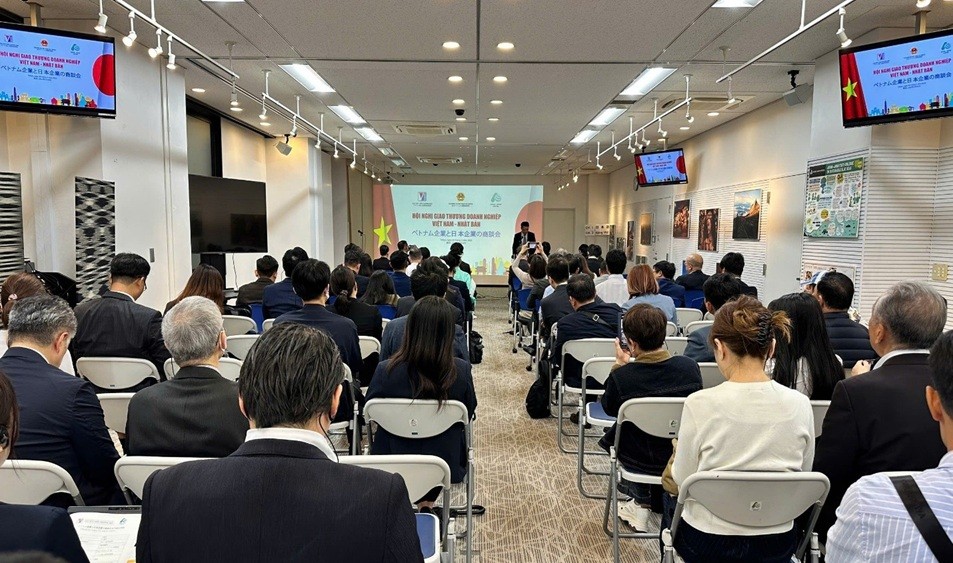 Friendship
Friendship
Promoting Vietnam - Japan Economic Cooperation
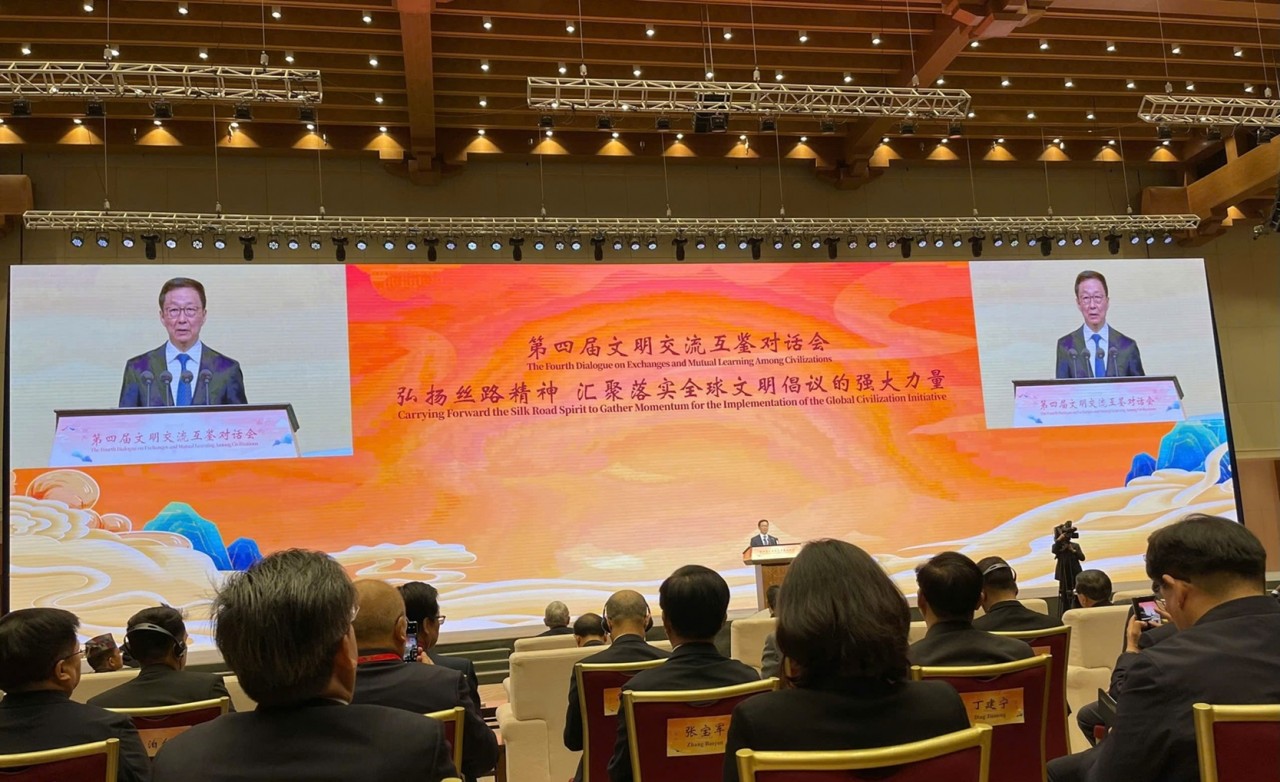 Friendship
Friendship
VUFO Attends Fourth Dialogue on Exchange and Mutual Learning among Civilizations
 Friendship
Friendship

